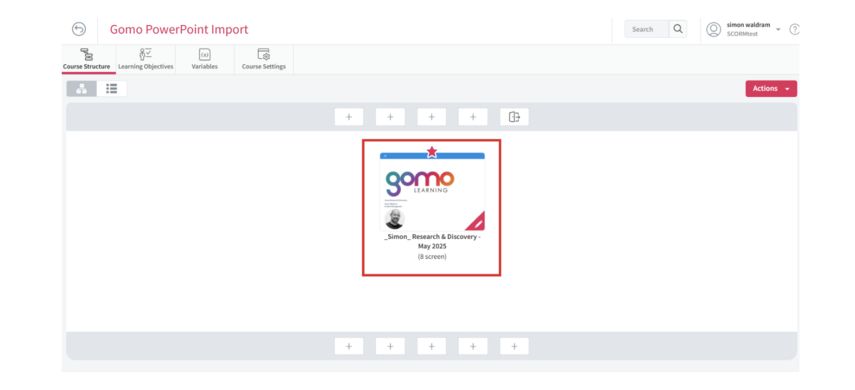To Streamline eLearning from Storyboarding to Execution
 Brighton (UK), August 2025 - Gomo, the cloud-based eLearning authoring tool known for its intuitive design capabilities, has announced the launch of its new PowerPoint import feature. This addition allows instructional designers to transform existing PowerPoint presentations into interactive eLearning modules while significantly streamlining course development.
Brighton (UK), August 2025 - Gomo, the cloud-based eLearning authoring tool known for its intuitive design capabilities, has announced the launch of its new PowerPoint import feature. This addition allows instructional designers to transform existing PowerPoint presentations into interactive eLearning modules while significantly streamlining course development.
The feature has the ability to support PowerPoint import as well as other .pptx files, such as those downloaded from Google Slides. For flexibility, these files can be imported either to initiate brand-new course design or added to existing modules.
Simon Waldram, product manager at Gomo, commented: "We know that learning designers are often short on time and under pressure to deliver engaging eLearning while cooperating with stakeholders across a wide range of functions. That's why we're so pleased to bring the PowerPoint feature to market."
Learning designers and course creators often use .pptx files during the initial storyboarding phase of the learning design process. Stakeholders outside of the eLearning function may also be accustomed to sharing feedback on these types of files. The ability to import .pptx files will allow learning designers to continue with established workflows. By seamlessly bringing the storyboarding process into an authoring tool, content creators can reduce complexity in the design workflow and save time as stakeholders share feedback during the initial stages of course creation.
The PowerPoint import feature allows for rapid slide deck uploads. Each slide can be imported as an individual screen, with all content being retained. Gomo intelligently separates all the text, images, videos, and audio from the slide deck into different elements. This enables learning designers to apply the full spectrum of Gomo features—including interactivity and AI-powered translation—to each element.
Even slide notes can be imported, giving learning designers peace of mind that no important context will get lost between the initial stages of the course’s design and its execution.









